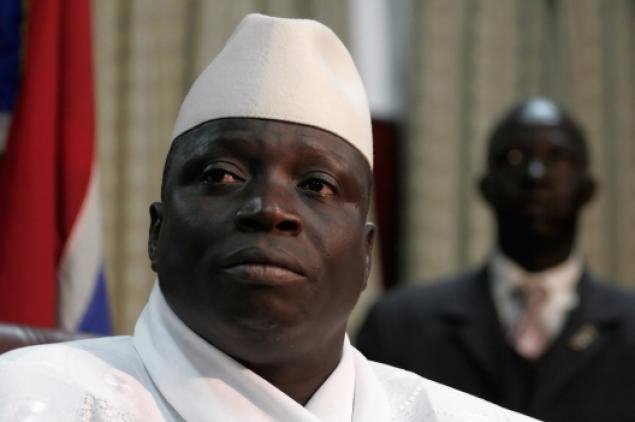The Gambia’s longtime leader Yahya Jammeh, who fled into exile three years ago after an election loss, has announced plans to return to the West African nation where human rights activists say he ordered the killings of political opponents during his rule.
Over the weekend, the deputy spokesman for Jammeh’s political party released several audio recordings of conversations between Jammeh and a top party official to the media.
“I am coming back. They said they drove me out of the country. Apart from Allah [God], nobody can take me out of the Gambia,” Jammeh is heard saying.
The recordings could not be independently verified, and it was not clear when they had been made.
Jammeh’s two-decade-long rule was marked by arbitrary arrests, enforced disappearances and extrajudicial killings, according to rights activists.
Along with political opponents, Jammeh also targeted journalists and members of the LGBT community.
While the former leader has not been charged with a crime, witnesses have testified before an ongoing Truth, Reconciliation and Reparations Commission, some saying they had carried out summary executions at his direction.
Authorities also have suggested Jammeh could face economic crimes for pillaging state coffers before he fled into exile in Equatorial Guinea in January 2017.
He stole an estimated $1bn during his rule, according to the Organized Crime and Corruption Reporting Project.
Equatorial Guinea, led by the same president for more than 40 years, is unlikely to extradite Jammeh.
It is unclear what measures Gambian authorities would take if Jammeh voluntarily returned home.
Dou Sannoh, an adviser to Gambian President Adama Barrow, said on Sunday that he was unaware of any ongoing negotiations over Jammeh’s possible return.
But he said the former leader would be welcome to appear before the commission that has been investigating alleged abuses during his rule.
“He is a citizen. He has every right to stay in his hometown and go and answer to the law,” Sannoh said.
‘Remedy to victims’
The audio recordings prompted outcry from the Gambia Center for Victims of Human Rights Violations, which said the government should arrest Jammeh if he sets foot in the country.
“Former President Yahya Jammeh’s rule in the Gambia was a tyrannical and brutal dictatorship,” said Sheriff Kijera, the organisation’s chairman. “He is a fugitive from justice and a subject of serious allegations of human rights violations.”
Kijera said: “If former president Jammeh is authorised to return to the Gambia without being arrested, charged and prosecuted for his crimes or transferred to another state for him to face justice, it would be a big failure on the part of the government of the Gambia to uphold its duty to the people of Gambia, as well as its international obligation to provide an effective remedy to victims.”

